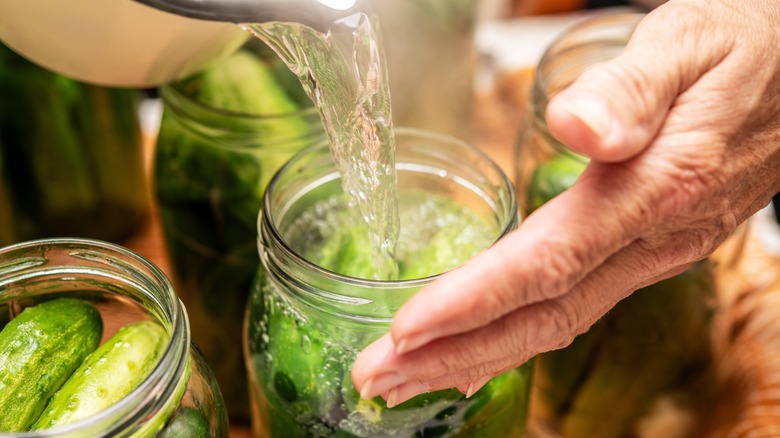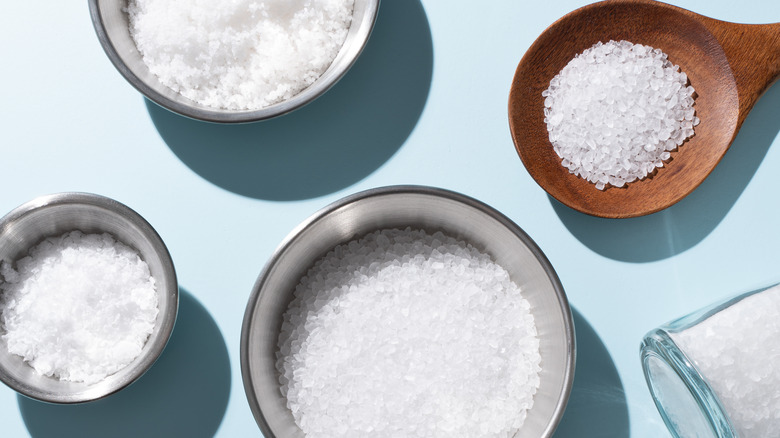What Makes Pickling Salt Unique?
Pickling or canning your own produce can be extremely rewarding, allowing you to flex your creativity by infusing produce with different flavors. Using pickling salt is an essential part of this process, but what exactly makes it any different from the salt most people have on their dinner tables? Well, unlike many variations of table salt, sea salt, or kosher salt, pickling salt is pure sodium chloride with absolutely nothing else added.
This pureness is important for pickling because the anti-caking agents and additives, like iodine, in other types of salt can cause pickling liquid to become cloudy or dark. Definitely not something you want in your jar of pickled cucumbers. Instead, pickling salt creates a clear pickling brine that will preserve your produce cleanly. Aside from lacking additives, pickling salt is also very fine, with grains even finer than table salt. This allows it to dissolve much more quickly into your pickling brine, which is exactly what you want.
Other than that, pickling salt is precisely like any other, and outside of pickling, it can be used the same way you'd use any of the many other types of salt. That said, its fine grains make it particularly good as a topping for things like popcorn, french fries, or homemade tortilla chips!
Pickling salt can be substituted if you're in a pinch
Although pickling salt is ideal for canning and pickling, it can be substituted if you don't have any on hand. One of the most common substitutes for pickling salt is kosher salt, which usually doesn't have any additives like iodine that can cause discoloration. However, it can still have anti-caking agents to prevent the granules from clumping in the container. If you are going to be using kosher salt, make sure to check the label to ensure it is pure. While you can technically use salt with additives and anti-caking agents, the resulting discoloration can make it challenging to notice bacterial growth or unwanted fermentation in your pickled produce.
Another thing to consider when substituting another type of salt is the size of the granules. Larger flakes of salt aren't going to dissolve as quickly as picking salt, and you may have to use different measurements for them. For example, because of its tiny grains, one tablespoon of pickling salt will be much more dense than one tablespoon of kosher salt with larger grains. Because of this, measuring by weight is essential if you're going to be using a substitution. The last thing you want is to add too little salt to your pickling solution and end up with spoilage.

